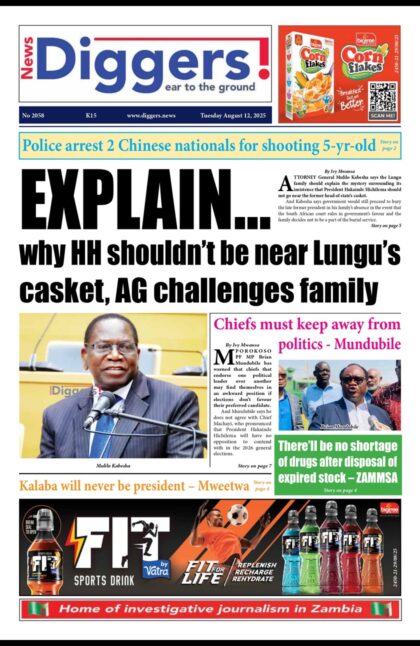Bridges Limited managing consultant Chibamba Kanyama says government’s delay in deciding the future of Times of Zambia Printpak is making the paper more expensive to run everyday that passes.
And Kanyama says redressing the challenges faced by the Times of Zambia printpak will inspire public trust in the future of state owned enterprises.
Responding to a press query from News Diggers! Kanyama noted that the Times of Zambia did not need debt financing as it had no capacity to pay back, suggesting that equity financing was the only viable option.
“We should first of all establish Government’s position on the Times of Zambia. Does government want to retain it or let it go? I believe this decision goes beyond the authority or mandate of the Industrial Development Corporation, the parent company of Times of Zambia. It is an issue that Government should resolve through recommendations by the IDC. Secondly, we need to know that costs for the Times of Zambia are rising by the day, causing serious anxieties among the various stakeholders who are now aware the problems associated with the paper have become public and the shareholder is equally uncertain about the future of the paper. The longer it takes to resolve the problem, the more expensive it becomes for the paper to run,” he observed.
Kanyama noted that public confidence in the central role of the IDC in managing parastatals would rise if government would succeed in turning around the Times of Zambia situation.
“As things stand, the problems of the Times of Zambia have had their own spill-over effects as they reflect the difficult terrain of the media industry at large. It is not long ago the largest independent newspaper, The Post, was closed on account of statutory lapses (as communicated). I believe there is hope for the media industry in Zambia unless we are disassociating its prospects from the positive vibes about the economy as a whole. If indeed the Zambian economy is projected to grow, the media industry should grow and this is the context under which we should decide the future of the newspaper. In addition, redressing the Times of Zambia challenges will inspire public trust in the future of State Owned enterprises, as the majority share a similar operational and financial landscape as the paper. If we can succeed to turn around Times of Zambia, public confidence in the central role of IDC in managing parastatals will rise. I personally believe IDC has that capacity, it just revived a bank that went under, Albert using different root,” stated Kanyama.
“Times of Zambia does not need debt financing at the moment, it has no capacity to pay back. Equity financing is the only viable option considering its cash flows in the next few years, if given a lease of life, will be absorbing the current negative shareholder funds. On the other hand, The CEO of Times of Zambia should have a position paper on the viability of the paper. It is very important to communicate the motivation to stakeholders so that we read the mind of the current management team; who knows that would immediately unlock potential equity financing. Some of these issues require aggression; you cannot get any support from government without fighting; shareholders generally get excited if your strategic plan points to their own success.”
























